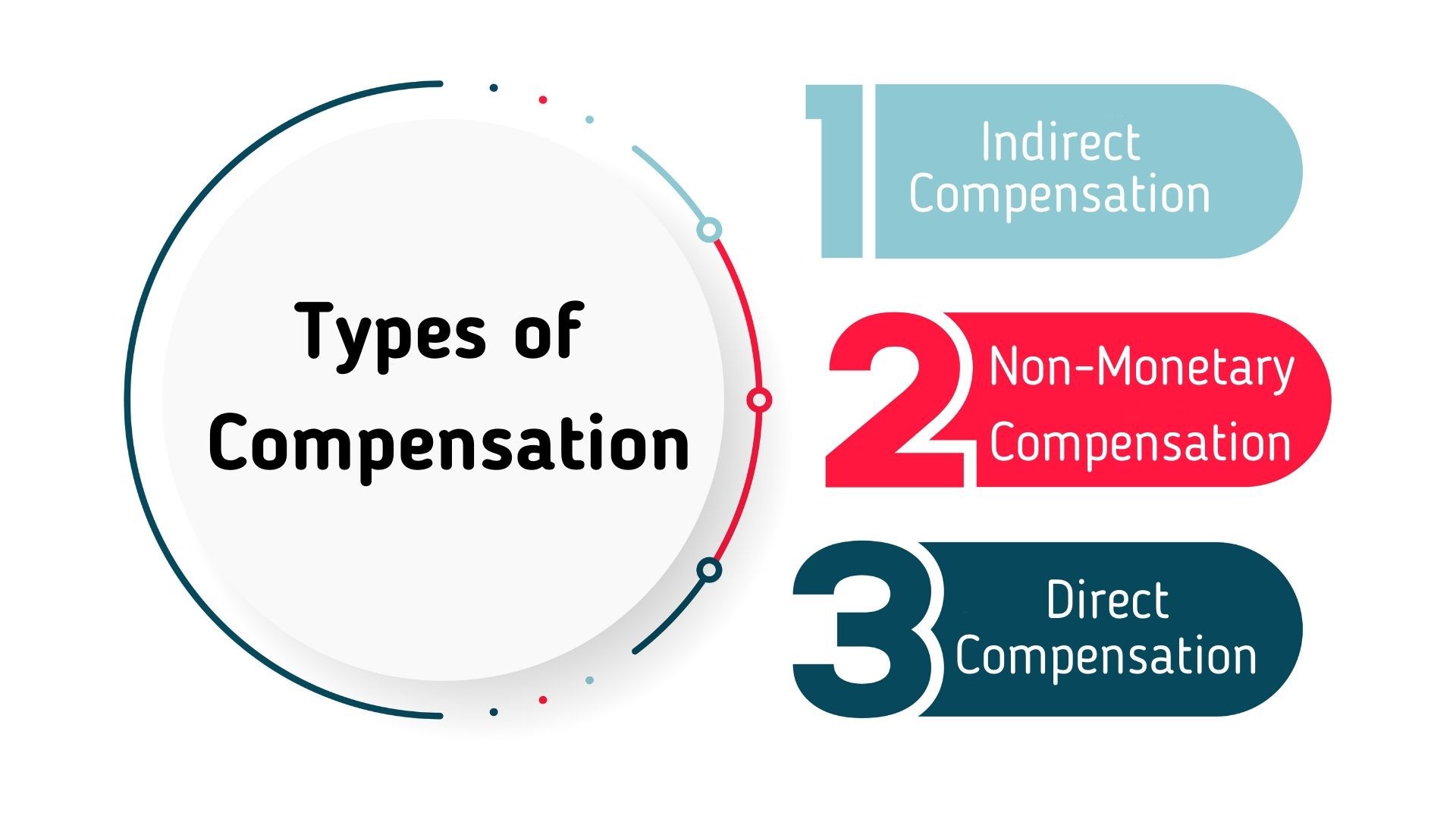Compensation management refers to the whole process of deciding, analyzing, channelizing, and managing the salaries, perks, incentives, and other types of benefits that employees receive.
Compensation managers are responsible for effective human capital management with an aim to attract, engage and retain employees by ensuring a broad and competitive compensation plan as per the spending plan of the company.
Table of Contents
What is Compensation Management?
Compensation management is also otherwise known as reward management, remuneration management, salary, and wage administration.
They are all related to the implementation and construction of the total compensation package of the employees for effective human capital management to fulfill their cost of living in a constructive and motivational manner.
Compensation Management Systems are incorporated to guarantee that an organization’s bonuses and salaries are significant in comparison to the competitors. They also include the compensation data and benefit programs, plus also use compensation management software to ensure that they meet the demands of the workforce.
Why Compensation Management is Important?
There is no denying the fact that the Compensation management department is an essential asset for the organization. If the bonuses, benefits, and salaries are not handled properly, it directly leads to chaos inside the organization.
Managing compensations is an HRM (Human Resource Management) function related to all the rewards and incentives that an employee receives during his tenure inside an organization.
These incentives are earned after the completion of all the organizational tasks that are assigned to the employees. Compensation’s managers are all responsible for the employment data.
They also have the job of looking towards the complex regulation and rules. Compensation management has a direct correlation to employee retention. A compensations manager is responsible for fulfilling the cost of living of the employees and making sure that they are happy with their day to day lives.
All the organizations always look to reduce the employee attrition rates as hiring a new employee means additional cost for the organization.
Because of all such reasons, hr leaders like to have compensation data to optimize employee compensation, so they can motivate their workforce and ultimately optimize employee performance, employee engagement, and retention.
11 Objectives of Compensation Management Systems
The various objectives of management compensation are as follows:
1. Compensation consistency
There should be internal and external consistency in compensation. Internal compensation involves a payment based on the job role of the employees. External compensation means higher compensation and benefits is related to the best performing employees.
2. Additional administrative efficiency
All the salaries and wages need to be managed effectively, making sure that there is the optimal use of HRIS.
3. Adherence to all the laws
A well-balanced salary and wage structure take into consideration all the legal compliances of the organization. They make sure that the employers adhere to all the legalities involved in handing out the compensation.
4. Rewards induced behavior
The payment structure of the organization should motivate induced behaviors of the employees. In this way, employers can cultivate a good work ethic and attitude among the employees. This method is proven to increase the output of the employees.
5. Current employee retention
If the compensation of the organization is not up to the mark, then employees are bound to quit the job. This equals a high turnover rate of employees in the organization that is not at all ideal. To retain employees, the compensation has to be competitive and at least on par with the industry standards.
6. To be sufficient
The compensation package of the employee must be satisfactory at all levels. This means that a low job profile employee must never be overlooked to please a high job profile.
7. Personnel motivation
The compensation package is directly in proportion to motivating the employees for higher productivity. Employees also demand praise, status, acceptance, recognition, and promotion.
8. Better understanding
The compensation package should be designed in a manner that the employees understand easily. There is no point in making a complicated compensation package as employees might end up feeling anxious.
9. Costs control
A well-constructed compensation plan helps the organization to control costs as the organization has to spend less on hiring new employees.
10. Equity maintenance
The worth of the job should be in direct relation to the internal equity of the job. External equity refers to the compensation of other organizations in the job market.
11. Hire qualified employees
The compensation of the job must be high enough to attract high profile applicants to the organization. This is the primary reason the compensation package needs to be designed precisely.
Types of Compensation
There are three significant types of compensation for an employee that should be an integral part of efficient Compensation Management Systems-
1. Indirect compensation
All the non-monetary benefits given to the employees fall under this category. Moving expenses, health insurance, paid leave, childcare, and retirement programs all fall under this compensation category.
2. Non-monetary compensation
All the intangible values that an employee receives from his employer falls under this category. Career advancement, career development opportunities, recognition in the organization, good working condition all come under the non-monetary compensation category of compensation.
3. Direct compensation
The basic salary and the health benefits that an employee receives from his employer in exchange for his efforts are part of the direct compensation. The basic salary can include performance-based pay or annual salary or hourly pay. The money received can be in the way of commission, wages, bonuses, and salaries. They also include payment for holidays, medical benefits, city allowance, house rent allowances, provident funds, and conveyance.
Compensation Management Software
A useful Compensation Management Software helps the HR manager keep track of employee salary budgets and job role-specific salary information.
These software solutions provide the HRM with a 360-degree view of the employee data that are required during the staffing decisions of the organization.
The software also gauges if the employees’ compensation is following the legal laws and regulations of the country’s different HR acts. Data access is another prominent feature that this software provides.
The source of data must be big enough to prove the importance of the statistics. This also proves the consistency of data and ensures that the numbers are not just randomly generated.
List of some of the best Compensation Management Software-
- UKG Pro (formerly Ultimate Software UltiPro)
- Ceridian Dayforce HCM
- Beqom Total Compensation Management
- CURO Compensation Management
- CompTrak
- Salary.com’s CompAnalyst
- FairPay Pro
- Workday HCM
- PayScale Insight Lab
- beqom Total Compensation
- Harvest HCM Compensation Management Software
- Vue Producer Compensation
- eeCompensation
Features of Compensation Management Software
Some of the notable features of the aforementioned compensation management software are-
- Salary & commission tracking
- Budgeting, forecasting, and approval workflow
- Performance metrics, long-term planning, benefits deferral
- Executive compensation
- Import of updated real-world salary and comp data
- Market pricing analytics, compensation research
- Job description authoring guidance (e.g. competence, salary)
- Salary review and policy/guideline compliance control
- Competence and job matching
- Flight risk analysis
- Custom dashboards and report analytics
Compensation Management Jobs
The Human Resource department of an organization is responsible for Compensation management.
Under the Human Resource department, those HRs are specifically hired to manage the payroll of the employees. These specific HRs have Compensation management jobs, and their primary lookout is the compensation plan for the organization’s employees.
The Compensation management job is a crucial aspect of the smooth running of an organization.
An underperforming organization can boost its employee’s performance by Indirect compensation, Non-monetary compensation, and Direct compensation.
This helps to reduce the employee attrition rate and enhance the satisfaction levels of employees within the organization.
The duties and responsibilities of compensation managers or HR managers responsible for designing compensation packages and employee salaries include-
- Developing and evolving pay scale and structure of an organization
- Determining competitive wage rates and change as necessary
- Making sure that the company’s pay scale complies with varying state/federal laws and regulations
- Managing and overseeing the distribution of pay to employees
- Coordinating with managers to help develop promotion and retention strategies
- Creating a department budget and keeping operations within that budget
- Managing compensation and payroll support team
Compensation Management Jobs Salary
According to the market analysis and compensation data, managers who are responsible for employee compensation management also make good remunerations for themselves.
Though the salary of compensation management executives and managers vary as per their experience, location, and employer, generally they make-
- Median Annual Salary: $121,010
- Top 10% Annual Salary: $205,470
- Bottom 10% Annual Salary: $70,560
Here is a video by Marketing91 on Compensation Management.
Compensation Management Jobs Skills & Competencies
For getting the best-suited compensation manager jobs, it is important to remain competitive and acquire below given key skills-
1. Analytical Skills
For effective management of compensation, managers need to have the skills of collecting, weighing, and analyzing market data to find out the best compensation plan for the organization.
2. Communication skills
Compensation management jobs also want executives and managers to be able to effectively talk and write about the payment strategy and related concerns.
3. Mathematical skills
Compensation calculation needs a good knowledge of math and statistics.
Summing Up!
Compensations’ management is needed in almost every industry to ensure pay equity and remain competitive as per the market data.
HR managers are also responsible to design good compensation packages while deciding employee salaries.
Its role is often seen as pivotal to ensure employee retention in business.
How significant do you consider a compensation management system for ensuring pay equity, profit sharing, and good performance?
Liked this post? Check out the complete series on Human resources

